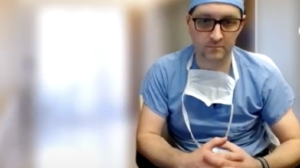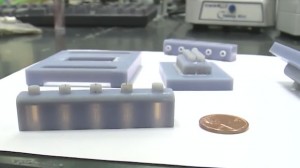NEW YORK (Reuters Health) – Extracorporeal shock wave lithotripsy (ESWL) is an effective and safe treatment for renal calculi in children, French researchers report in the June issue of the Journal of Urology.
Dr. Stephen J. Griffin of the Necker Hospital for Sick Children, Paris and colleagues came to this conclusion after reviewing data on 182 children (mean age, 5.3 years) treated with ESWL during a 20-year period.
The children received 1 to 4 sessions of ESWL per kidney, with at least 1 month between treatments. The median number of shocks delivered per session was 3,000.
Comparison of pre- and post-treatment renal scintigrams showed no new scars. Pre- and post-treatment renal function was normal in 70% of patients, 19% had reduced function before and after treatment and 7.7% had improved function in the treated kidney.
One patient had transient impaired function in the treated kidney; another had permanent impairment.
Overall, the researchers conclude that despite the renal parenchymal trauma associated with the procedure, “lithotripsy does not seem to cause long-term alterations in renal function or development of permanent renal scars in children.”
Dr. C. D. Anthony Herndon of the University of Alabama at Birmingham, author of an accompanying editorial, told Reuters Health by email, “With this long term single center study of treating children for over 20 years with ESWL for upper urinary tract calculi, it is clear that although in theory, the pediatric kidney may be at risk of injury, the outcomes data from pre- and post treatment renal scintigraphy do not substantiate this claim.”
“Although more treatment sessions may be required in comparison to more invasive procedures, it does not appear to impact overall renal function on a long term basis,” Dr. Herndon said.
Reference:
J Urol 2010;183:2332-2336.




